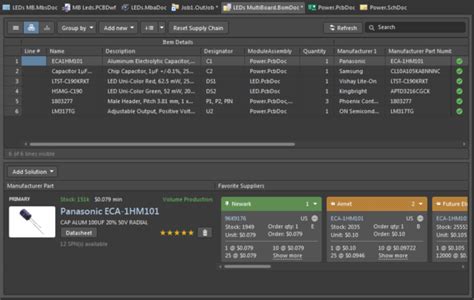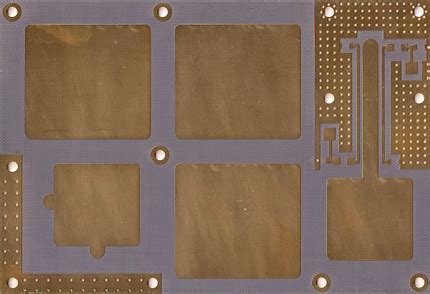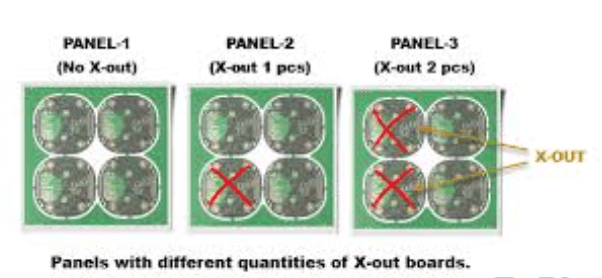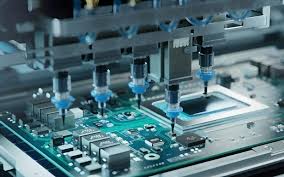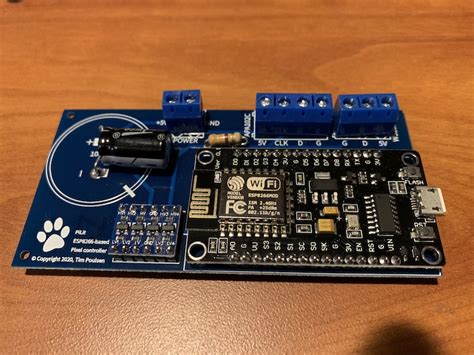Streamlined PCB Fabrication: From Prototype to Production
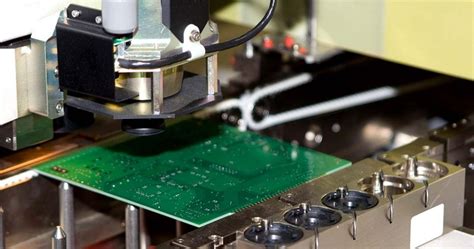
Key Takeaways
When navigating the PCB manufacturing process, understanding the bridge between prototyping and full-scale production is critical. Leading PCB manufacturing companies optimize this transition by offering integrated solutions that reduce delays and ensure design integrity. Whether you’re managing PCB manufacturing cost for a startup or coordinating a global supply chain, partnering with a full-service provider eliminates fragmented workflows and minimizes risks.
Tip: Always verify if your manufacturer provides design-for-manufacturability (DFM) feedback during prototyping—this step often uncovers cost-saving opportunities before scaling.
A reputable PCB manufacturing business balances precision with scalability, leveraging technologies like automated optical inspection (AOI) and advanced materials to meet industrial standards. For enterprises prioritizing single-source reliability, consolidating prototyping, assembly, and testing under one roof ensures consistency while reducing logistical overhead. Transparent pricing models further help you forecast PCB manufacturing cost accurately, whether producing 100 units or 100,000.
By aligning with partners who emphasize agile iteration and rigorous quality controls, you mitigate the common pitfalls of scaling—from thermal management flaws to signal integrity issues. This strategic approach transforms complex PCB manufacturing challenges into predictable, repeatable outcomes.

PCB Prototyping to Mass Production
Navigating the journey from PCB prototyping to full-scale production requires strategic alignment with PCB manufacturing companies that understand both technical precision and commercial scalability. When you transition from design validation to volume manufacturing, factors like PCB manufacturing cost, material selection, and lead time optimization become critical. Reputable providers streamline this process by offering design-for-manufacturability (DFM) checks during prototyping, ensuring your board meets performance and cost-efficiency benchmarks before scaling.
For businesses balancing speed and quality, PCB manufacturing business models often provide tiered pricing structures—lower per-unit costs at higher volumes while maintaining consistency. Below is a comparison of key considerations:
| Factor | Prototyping Phase | Mass Production Phase |
|---|---|---|
| Lead Time | 3-7 days | 2-4 weeks |
| Minimum Order Quantity | 1-10 units | 100+ units |
| Cost Drivers | Setup fees, rapid turnaround | Bulk material, tooling |
| Quality Focus | Functional validation | Process repeatability |
By partnering with full-service PCB manufacturers, you mitigate risks like supply chain delays or design flaws. Advanced PCB manufacturing workflows integrate automated testing and real-time yield monitoring, ensuring seamless scalability without compromising reliability. Whether optimizing for PCB manufacturing cost or preparing for high-volume demands, aligning with experienced partners bridges the gap between innovation and market-ready solutions.
Global Enterprises Trust PCB Manufacturing
When scaling your electronics from prototype to market, partnering with established PCB manufacturing companies becomes critical. Global enterprises rely on these providers not just for technical expertise, but for the ability to balance PCB manufacturing cost with uncompromised quality. By consolidating design, fabrication, and testing under one roof, trusted partners eliminate logistical friction—ensuring your boards meet industry certifications and performance benchmarks without delays.
The PCB manufacturing business thrives on precision, but leading firms go further by embedding flexibility into their workflows. Whether you’re iterating a high-frequency design or ramping up volume, robust supply chains and advanced automation enable seamless transitions between low-volume batches and mass production. This agility is why multinational corporations prioritize vendors who align PCB manufacturing timelines with their product launch cycles, minimizing overhead while maintaining traceability.
Your choice in manufacturer impacts more than just unit pricing—it shapes scalability. Reputable providers offer transparent cost structures, helping you forecast expenses for materials, labor, and compliance. By leveraging economies of scale, they mitigate risks like component shortages or geopolitical disruptions, ensuring your PCB manufacturing strategy remains resilient in volatile markets.
Precision PCB Fabrication Since 1986
When you partner with experienced PCB manufacturing companies, you gain access to decades of refined expertise in balancing pcb manufacturing cost with uncompromised quality. Since 1986, industry-leading providers have mastered the art of precision etching, multilayer lamination, and microvia drilling—techniques critical for high-reliability boards in aerospace, medical devices, and telecommunications. Modern pcb manufacturing business models prioritize scalability, ensuring seamless transitions from low-volume prototyping to high-volume production without sacrificing tolerances as tight as ±2 mils.
Advanced manufacturers integrate automated optical inspection (AOI) and impedance testing to eliminate defects early, reducing rework costs and accelerating time-to-market. By leveraging design-for-manufacturability (DFM) feedback, you avoid common pitfalls that inflate pcb manufacturing expenses, such as mismatched material selections or overly complex layer stacks. Trusted partners also adhere to ISO-certified processes, guaranteeing consistency across batches—whether you need 10 prototypes or 10,000 production units. This combination of technical mastery and operational discipline ensures your designs meet both performance benchmarks and budgetary goals.
Full-Service PCB Assembly Solutions
When scaling from prototyping to full-scale production, partnering with PCB manufacturing companies that offer end-to-end solutions ensures seamless transitions. These providers integrate design validation, component sourcing, assembly, and testing under one roof, eliminating the logistical hurdles of managing multiple vendors. For instance, advanced surface-mount technology (SMT) and through-hole assembly are often combined to meet diverse project requirements, while automated optical inspection (AOI) guarantees quality consistency.
A key advantage lies in optimizing PCB manufacturing cost through economies of scale. By consolidating processes like material procurement and panelization, suppliers reduce waste and overhead—critical for balancing speed and affordability. Additionally, design-for-manufacturability (DFM) feedback during early stages minimizes rework risks, ensuring your design aligns with production capabilities.
For businesses navigating the complexities of the PCB manufacturing business, full-service partners provide agility. Whether adapting to rapid design iterations or shifting volume demands, their infrastructure supports both low-mix/high-volume and high-mix/low-volume scenarios. This flexibility is vital for industries like automotive or IoT, where timelines and specifications evolve quickly. By centralizing expertise, these solutions let you focus on innovation while they handle the intricacies of PCB manufacturing.
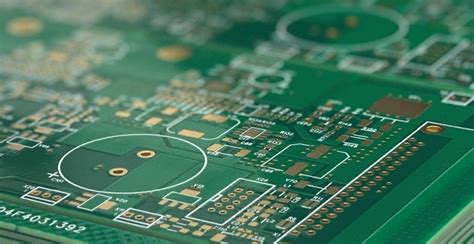
Single-Source PCB Production Reliability
When scaling from prototypes to full-scale production, partnering with a PCB manufacturing partner that offers single-source reliability ensures seamless transitions and minimizes operational risks. Leading PCB manufacturing companies integrate design, fabrication, and assembly under one roof, eliminating the delays and inconsistencies that arise from juggling multiple vendors. By consolidating your supply chain, you reduce PCB manufacturing cost overheads tied to logistics, quality mismatches, or communication gaps—common pain points in fragmented workflows.
A trusted single-source provider simplifies compliance tracking, material traceability, and technical support, which are critical for industries like aerospace or medical devices. For example, when design revisions occur mid-production, an integrated partner can swiftly adjust fabrication parameters without external delays. This agility is especially valuable when balancing tight timelines with PCB manufacturing business demands like certification adherence or custom material sourcing.
Moreover, unified accountability reduces the likelihood of defects, as quality control protocols remain consistent across all stages. Whether you’re managing low-volume batches or high-volume orders, this model ensures predictable outcomes while safeguarding your intellectual property. By choosing a partner that aligns with your scalability needs, you secure a foundation for long-term growth without compromising on precision or reliability.
Custom PCB Manufacturing Best Practices
When navigating PCB manufacturing for custom designs, aligning your requirements with the capabilities of PCB manufacturing companies is crucial. Start by defining clear specifications—board material, layer count, surface finish, and tolerances—to avoid costly revisions. Prototyping phases often reveal design flaws, so work with partners offering iterative feedback to refine your layout before scaling.
To optimize PCB manufacturing cost, evaluate pricing models against order volumes. Many providers offer tiered rates for low-volume batches versus mass production, but ensure quality isn’t compromised for savings. For example, opting for cheaper laminates might reduce upfront expenses but risk long-term reliability in high-stress environments.
Another critical aspect is streamlining communication. Establish a single point of contact within your chosen PCB manufacturing business to clarify technical queries and track timelines. This minimizes misunderstandings, especially when dealing with complex designs like HDI or flex-rigid boards.
Lastly, prioritize suppliers with certifications (e.g., ISO 9001, IPC-A-600) to guarantee adherence to industry standards. Whether you’re developing IoT devices or aerospace systems, aligning with certified partners ensures your custom PCBs meet both performance benchmarks and regulatory demands.
Cost-Effective Prototype PCB Services
When developing electronic products, balancing PCB manufacturing cost with quality is critical during prototyping. Leading PCB manufacturing companies leverage advanced processes to reduce expenses without compromising functionality. By optimizing design complexity and material selection, you can minimize waste and accelerate iterations. For instance, standardized panelization techniques lower material usage, while automated testing identifies flaws early—saving both time and budget.
Partnering with a full-service PCB manufacturing business ensures seamless transitions from prototype validation to scaled production. Many providers offer tiered pricing models, allowing you to pay only for the features needed at each development stage. This approach prevents over-engineering and aligns with lean manufacturing principles. Additionally, transparent quoting tools help forecast expenses accurately, avoiding hidden fees that inflate project budgets.
Cost-effectiveness extends beyond initial savings. Reliable PCB manufacturing partners integrate design-for-manufacturability (DFM) feedback, refining layouts to enhance yield rates and durability. This collaborative process reduces rework cycles, ensuring your prototypes meet performance benchmarks while staying within financial constraints. By prioritizing value-driven solutions, you lay the groundwork for scalable, high-quality production—setting the stage for the next phase of streamlined PCB turnkey manufacturing.
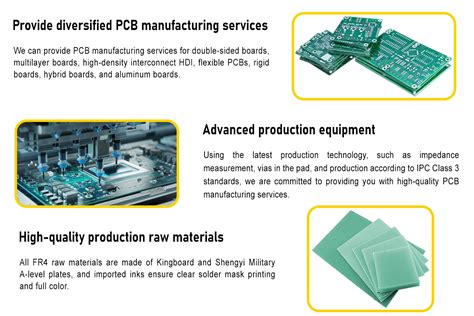
Streamlined PCB Turnkey Manufacturing
When scaling from prototypes to full-scale production, partnering with PCB manufacturing companies that offer end-to-end turnkey solutions ensures seamless transitions. These providers manage every stage—from design validation and PCB fabrication to component sourcing and final assembly—eliminating the need for multiple vendors. By centralizing workflows, you reduce PCB manufacturing cost risks tied to logistical delays or miscommunication, while maintaining strict quality benchmarks.
A robust PCB manufacturing partner integrates advanced technologies like automated optical inspection (AOI) and real-time supply chain tracking, enabling faster iteration cycles without compromising precision. This approach is particularly valuable for businesses balancing rapid prototyping with high-volume demands, as it minimizes downtime between development phases.
For enterprises optimizing their PCB manufacturing business strategy, turnkey services provide single-point accountability, simplifying compliance audits and certifications. Scalable solutions adapt to shifting production volumes, ensuring cost efficiency whether you’re testing 50 units or deploying 50,000. The result? Faster time-to-market, reduced overhead, and the flexibility to refine designs even during late-stage production—critical advantages in industries where innovation cycles accelerate daily.
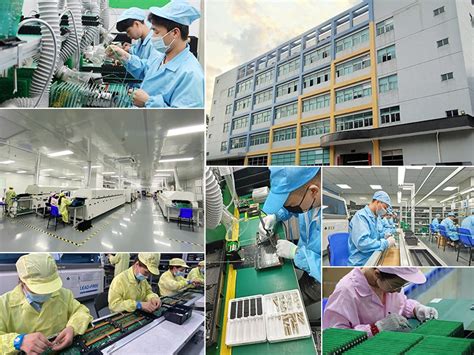
Conclusion
When navigating the complexities of PCB manufacturing, the journey from prototype to production hinges on aligning with partners that prioritize precision, scalability, and cost efficiency. Reputable PCB manufacturing companies understand how to balance PCB manufacturing cost with quality, ensuring your designs transition seamlessly from concept to market-ready products. By leveraging single-source solutions, you eliminate logistical friction while maintaining control over timelines and technical specifications—a critical advantage in today’s fast-paced electronics landscape.
Whether optimizing for low-volume prototyping or high-volume runs, the right partner will embed industry best practices into every stage, from material selection to final testing. This approach not only safeguards against delays but also future-proofs your PCB manufacturing business against evolving technological demands. As you evaluate providers, prioritize those offering transparent communication, robust quality assurance, and adaptable workflows—cornerstones of a partnership built to scale alongside your ambitions.
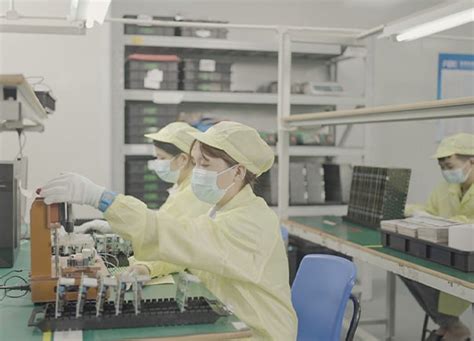
FAQs
How do you choose the right PCB manufacturing company for your project?
Start by evaluating their expertise in PCB manufacturing for your industry, production capacity, and certifications. Look for transparency in PCB manufacturing cost structures and their ability to scale from prototypes to mass production.
What factors influence PCB manufacturing cost?
Costs depend on design complexity, material selection, layer count, and order volume. Partnering with PCB manufacturing companies that offer tiered pricing and design-for-manufacturability (DFM) guidance can optimize expenses.
Why is prototyping critical in the PCB manufacturing business?
Prototyping identifies design flaws early, reducing costly revisions in mass production. Many PCB manufacturing providers offer rapid prototyping services to accelerate time-to-market while maintaining quality.
How do PCB manufacturing companies ensure quality control?
Reputable providers use automated optical inspection (AOI), X-ray testing, and functional testing protocols. Certifications like ISO 9001 and IPC-A-610 compliance are indicators of rigorous quality standards.
Can a single PCB manufacturing partner handle both prototyping and production?
Yes, many PCB manufacturing companies offer end-to-end solutions. This single-source approach minimizes supply chain risks and ensures consistency across design iterations and volume scaling.
Ready to Optimize Your PCB Workflow?
For tailored PCB manufacturing solutions that align with your project’s needs—from prototypes to high-volume orders—please click here to connect with experts who simplify complexity.


